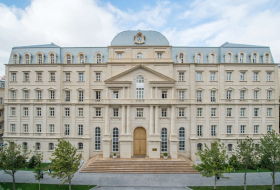“We targeted the two areas because according to information we have, those [al-Shabaab] fellows are coming from there to attack Kenya,” he said, in reference to Thursday’s massacre.
Al-Shabaab said the assault in Garissa, which is 120 miles (200km) from the Somali border, was revenge for Kenya sending troops into Somalia to fight alongside African Union peacekeepers against the group.
The group is aligned to al-Qaida and has threatened to turn Kenyan cities “red with blood” with more attacks. Police have stepped up security at shopping malls and public buildings in the capital Nairobi, and in the eastern coastal region which has been prone to al-Shabaab attacks.
On Saturday, the Kenyan president, Uhuru Kenyatta, vowed harsh measures against the Islamic militants. “We will fight terrorism to the end,” he said in a televised address. “I guarantee that my administration shall respond in the fiercest way possible.”
Al-Shabaab, which at one point controlled most of Somalia, has lost swaths of territory in recent years but diplomats have repeatedly warned this has not diminished its ability to stage guerrilla-style attacks at home and abroad.
Survivors of the Garissa attack spoke of merciless executions by the attackers, who stalked classrooms and dormitories hunting for non-Muslim students.
Reuben Mwavita, 21, a student, said he saw three female students kneeling in front of the gunmen, begging for mercy.
“The mistake they made was to say ‘Jesus, please save us’, because that is when they were immediately shot,” Mwavita said.
Within hours of the attack, Kenya put up a 20m shillings (£145,000) reward for the arrest of Mohamed Mohamud, a former Garissa teacher labelled “Most Wanted” in a government poster and linked by Kenyan media to two separate al-Shabaab attacks in the neighbouring Mandera region last year.
More about:
















































